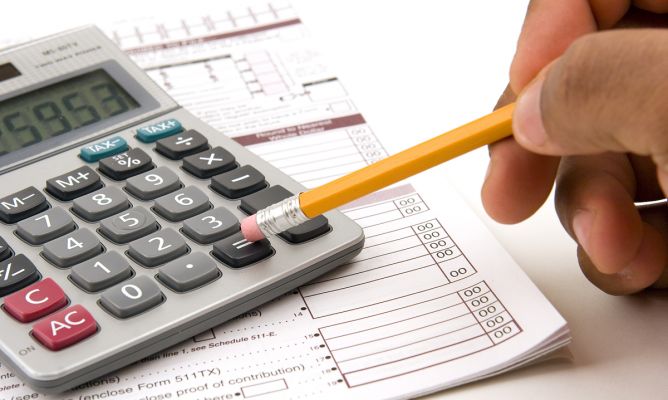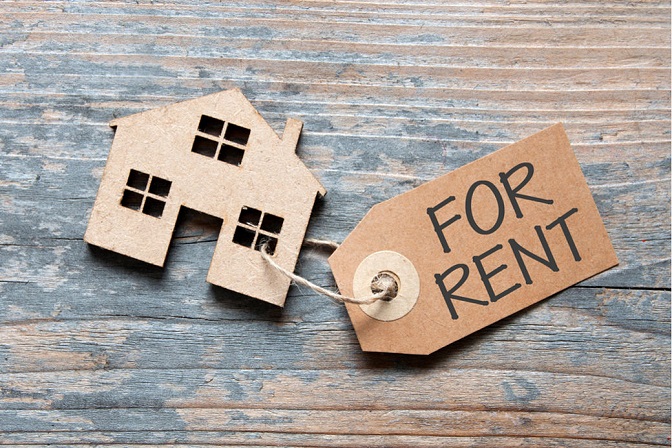
Whether you have a home that you barely use, or if you have just acquired a property as a future investment, it is very likely that you have seriously valued the possibility of renting this house asa tourist apartment.
Renting a tourist apartment is shown as an interesting source of income for the owners,as well as an option that allows you to rent an accommodation at a very economical price to the guests. Factors that have made that in recent years there has been a tremendous proliferation in our country regarding the rentals of tourist apartments.
But it must be taken into account that when renting a tourist apartment must comply with a series of tax obligations with the Tax Agency,since the income derived from the rental of apartments or tourist homes are subject to taxation in the personal income tax of the owners.
So if you have a home that you are thinking of renting as holiday accommodation, and you do not want to have any problem with the Treasury, take note because then in AYCE Laborytax we are going to tell you how to rent a tourist apartment legally and avoid sanctions from the Tax Agency.
Informative statement through Form 179
If you rent a tourist apartment through an intermediary,it will be these platforms of tourist rental of homes, which must present in hacienda the model 179. This model consists of the quarterly informative declaration on the transfer of the use of housing for tourist purposes, through which the Tax Agency can access such important data as:
- Identification of the homeowner.
- Identification of the house with specification of the cadastral reference, if assigned.
- Number of days of enjoyment of the property for tourist purposes.
- Amount received.
- Contract number under which the declarant intermediates in the transfer of use of the house.
- Date of intermediation of the operation.
- Identification of the means of payment used.
What taxes should you pay when renting a tourist apartment?

When renting a tourist home you will be obliged to pay the corresponding taxes for the profits obtained,in the same way that you would do with a conventional rental.
If you do not do so, it is very likely that you will receive a letter from the Treasury inviting you to regularize your tax situation,having to submit the returns omitted from the corresponding years through a supplementary return.
Once the letter is received, a control tax management procedure begins. The Tax Agency gives a period of 10 working days to respond to this request and, if it does not do so, it would be considered a serious tax violation and punishable by a pecuniary fine, which would correspond to 50% of 100% of the amounts not declared, plus interest for late payment.
If you don’t declare the income earned from the rental of housing, you could face a proportional fine of 50% to 100% of the undeclared amounts.
In addition, according to the Law of Urban Leases of each Autonomous Community, it could be mandatory to register as a company or self-employed worker,and register the house in the register of tourist housing.
We recommend that before renting a tourist apartment, you duly inform yourself about the regulations of your Autonomous Community,in order to have everything clear and avoid possible sanctions.
Value Added Tax (VAT)
When you put your home for rent, you will have to differentiate between whether you offer guests hospitality services, or not.
Those homes in which the owners do not offer hospitality services (cleaning, food, change of towels, etc.), will be exempt from vat. In the event that this type of services are offered, during the stay of the guests, the owner must issue invoices with a 10% VAT.
And if during your rental you offered different services to guests, it may be necessary that you have to charge different types of VAT.
If you have any questions about it, you can check with our team of tax advisors
of AYCE Laborytax,and they will offer you all the information you need to know.
Income Tax (IRPF)
When renting your home, you must declare the corresponding Personal Income Tax in two clearly differentiated periods in the same fiscal year:
- Rented housing:you will have to declare the income obtained by the rental of the house, being able to deduct all those expenses that have been necessary for the rent, in proportion to the days rented.
- Free housing: on the other hand you will have to declare the period in which the house has been free and available to the owners.
To calculate the Personal Income Tax that you will have to declare, you have to subtract the proportional part of the expenses necessary for the rent, from the income obtained. Keep in mind that you can only deduct a proportional part of the expenses, for the time that the house has been rented.
The net income resulting from these operations is not applicable to the reduction of 60% provided for in article 23.2 of the Personal Income Tax Law for leases intended for habitual residence, since it is a temporary lease.
Deductible expenses
You must keep in mind that when renting a holiday home, you can deduct all those expenses that you have incurred,such as the expenses for the cleaning of the property, laundry, repairs, IBI, interest on the mortgage, garbage rate, community expenses, insurance that cover the house, replacement of elements, works or reforms, water, electricity, Internet, etc.
Regulations of the Autonomous Community
Beyond complying with the corresponding obligations with the Tax Agency, before putting your home for rent, it is important that you see what the Regulations of your Autonomous Community say about it,since in the vast majority of cases, it might be necessary to obtain some type of license or permit to be able to rent the house legally.
In the Valencian Community and Aragon, you can rent a holiday home without any problem, as long as it is registered. In Catalonia the same thing happens, the problem would be in Barcelona, since the City of Barcelona does not grant licenses for holiday rentals since 2014.
On the other hand, in the Balearic Islands the rental of holiday homes in Communities of Neighbors is not allowed. The only option is that it is an isolated house, such as a villa or a villa.
In the Canary Islands, this type of rental cannot be located in tourist areas, with the aim of preserving the hospitality business. While in Madrid, the holiday rental is regulated, as long as the house is not rented for less than 5 days.
Tips for renting a holiday apartment

If you are finally going to rent your home as a tourist rental, beyond reviewing the regulations corresponding to your Autonomous Community, and complying with the corresponding tax obligations, there are a series of aspects that will help you to have everything in order and not suffer any type of problem in this regard.
In case your home is mortgaged, we recommend that you thoroughly review the conditions of the mortgage contract,since there are times when banks do not allow you to rent the house.
It is also important that if you find yourself renting in a home, do not re-rent rooms,as this is a completely illegal technique that could lead to heavy financial penalties.
conclusion
When renting a home as a holiday apartment, you must be clear that you will have to tax your earnings as a return on real estate capital,since otherwise, you could face heavy penalties of between 50% and 100% of the amounts declared.
In addition, you must check if the corresponding regulations of your Autonomous Community allow you to carry out the rental of the property.
In any case, if you choose to put a house for rent, it is best that you have professional tax advice,to ensure that you have everything tied up, and be able to solve any type of doubt that may arise about it. Contact our AYCE Laborytaxadvisors, and we will help you.








